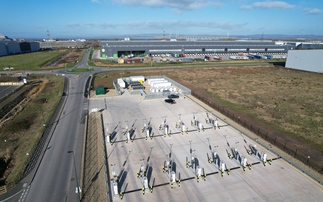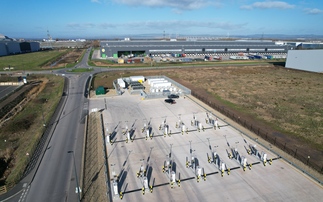Leading hauliers on track to deliver eight per cent cut in emissions by 2015
Awareness of climate change and the impact that carbon emissions have on all our futures has been steadily growing for some time. As the level of carbon dioxide in the atmosphere continues to grow, the temperature of the planet heats up, blanketed as it is by CO2 and other greenhouse gases. Numerous scientific studies have sought to predict what the future hold if carbon emissions maintain their current rate, but the conclusions have failed to reach a consensus. What is known is that most of them make grim reading, prompting action from governments across the world to cut their carbon output.
To reduce the carbon emissions of a country, it is necessary to make the various industries within it aware of how their actions impact the wider climate. Naturally, the transport industry and the amount of fuel it uses has come under the spotlight, as it produces 22 per cent of annual UK CO2 emissions. But it is not an issue that the sector is taking lightly.
The Logistics Carbon Reduction Scheme, operated by hauliers' trade group the Freight Transport Association, suggests that progress is already being made. Its latest report suggests that scheme participants from the haulage industry achieved a collective carbon emissions reduction of 2.6 per cent between 2009 and 2010, and is on target to achieve its goal of an eight per cent reduction by 2015.
In order to ensure further progress, the government has set up the Technology Strategy Board (TSB), a £9.5m scheme that aims to help firms in the transport sector reduce carbon emissions further. This scheme will complement the government's £250m plan to reduce emissions in the transport sector through increased usage of electric cars. Transport minister Mike Penning says that promoting a low-carbon future is a key government target, and the TSB scheme will be "crucial" in helping the transport sector reach those targets. The assistance it will provide includes help in organising and running groups of alternatively fuelled trucks, as well as offering advice on the infrastructure required to support them.
As illustrated by the Staveley Head Biofuel Infographic, biofuels offer a realistic alternative to petroleum fuel in the transport sector. The insurance provider's research highlights that under the Renewable Transport Fuel Obligation (RTFO), 4.3 billion litres of biofuel have been supplied in the last 36 months, helping the it go eight percentage points beyond its carbon reduction target.
Much of the biofuel now powering the transport sector - 3.1 per cent of all road transport fuel is now biofuel - comes from cooking oil, but bioethanol from Brazilian sugar cane and soy from Argentina is also used. However, as the majority of the feedstock used for biofuel is imported - only 22 per cent of biofuel used in the UK could be said to be home-grown - the next step may be to support the transport sector's efforts by stepping biofuel production in the UK in the drive towards a greener future.
This sponsored content was provided by Staveley Head







